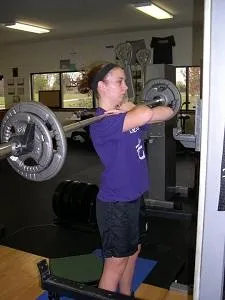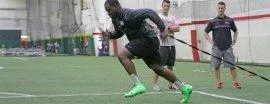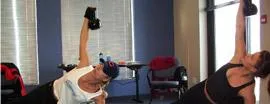Motivating Female Athletes To Be More Aggressive and Exert Maximum Effort

By Dr. Haley Perlus
Many coaches seek me out to offer guidance on motivating female athletes to be more aggressive and overall competitive. Today, although there are many examples of females reaching new athletic heights and gaining respect in sports, certain codes of acceptable behavior and gender norms still exist. For many female athletes who still aren’t sure what they want to achieve in sport, to avoid social repercussions, their motivation to fit in overpowers their desire to perform at their peak.
As a comparison, in and outside of sports, male athletes are valued for being brave, risk-taking, competitive, assertive, and strong. Conversely, female athletes often feel they need to balance the traditional feminine expectations about appearance, demeanor, and behavior, with the mental and physical strength needed for success. It’s a tough situation, but there is hope.
Now that you understand the possible challenges facing your female athletes, there are three things that have been shown to motivate and positively affect their efforts in training and competition. It doesn’t matter if you are a conditioning or sport coach, these three methods are applicable.

#1. Take advantage of social support.
Fitting in and being accepted are strong motivators for athletes. When you provide an environment where teammates can band together and support each other, your athletes will start fighting to uphold team values as supposed to western values. One way to do this is to distinguish your team from other groups. This works to enhance team pride and increase feelings of self-worth. We all want (actually need) to feel worthy and a highly committed and cohesive sport team provides self-worth to its athletes. When your athletes feel worthy and are a valued member of their team, they will care a little bit less about feeling worthy elsewhere.
#2. Motivating female athletes to share and collaborate.
Ask your female athletes what reputation they’d like to have. Then, as a team, you can brainstorm about how to enhance or sustain the identified characteristics. For example, you may collectively choose new words, other than aggression, that encourages maximum effort. Your athletes may set goals they happily agree to strive for, producing your (and their) desired outcome.
#3. Strategically choose leaders your athletes can model.
Bring out team leaders who can reinforce appropriate behavior in sport, but who are also valued outside of sport. These leaders may already be part of your team or you may have to search for athletes who have been there, done that, and can be an inspiration to your athletes. The idea here is to give your athletes people to model who are not only successful in sport, but also have the confidence and self-worth to be their best selves outside of the sports arena.
Reference: Group Dynamics In Exercise And Sport Psychology (2nd Ed) by Mark R. Beauchamp and Mark A. Eys

High School Strength Coach Certification

Certified Speed & Agility Specialist

Kettlebell Instructor Course

IYCA Insiders - Exclusive Access

Youth Fitness Specialist Certification

Long Term Athlete Development

Youth Nutrition Specialist Certification

Copyright © 2008 - 2025 International Youth Coaching Association. All Rights Reserved
|
|

